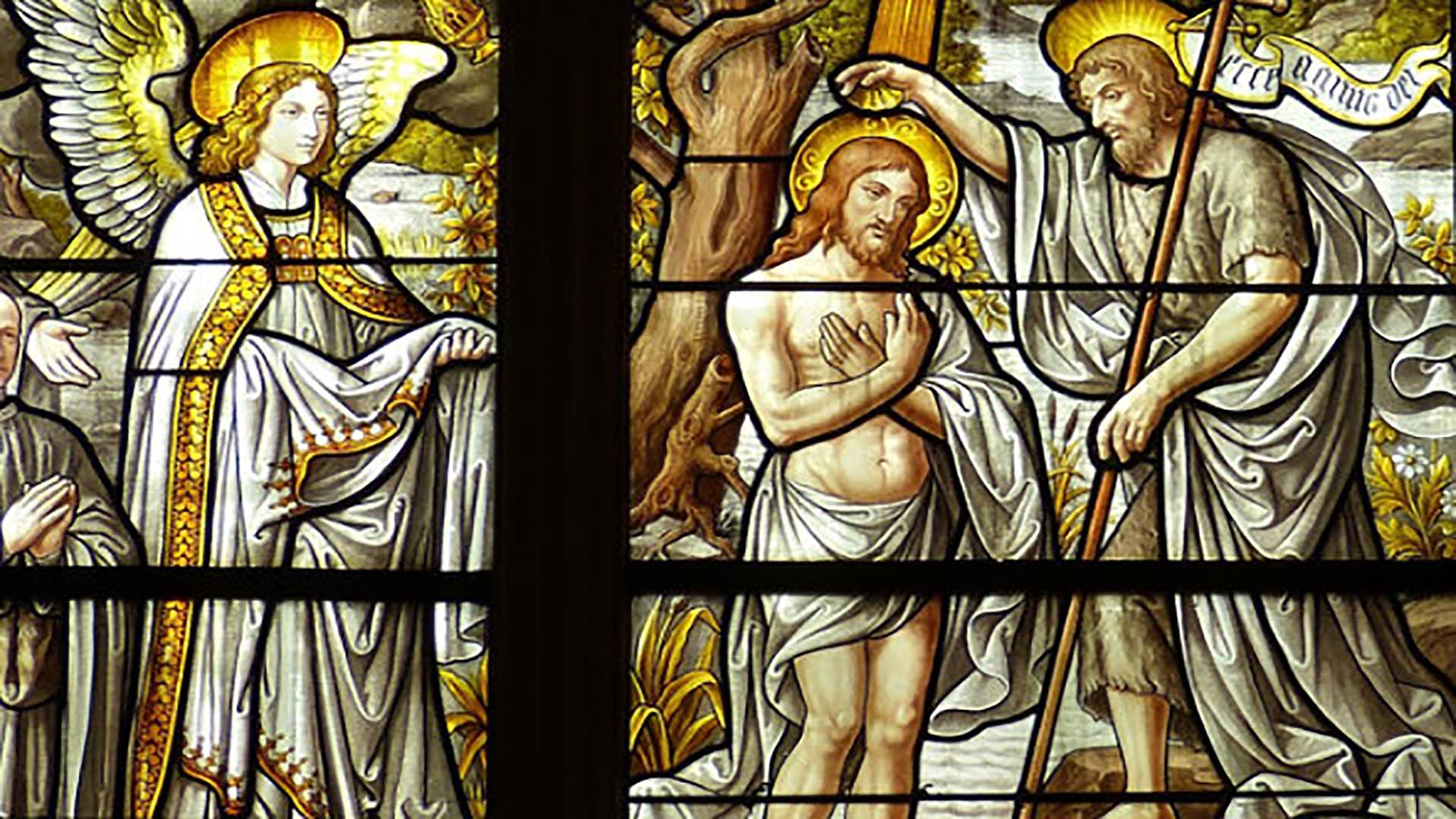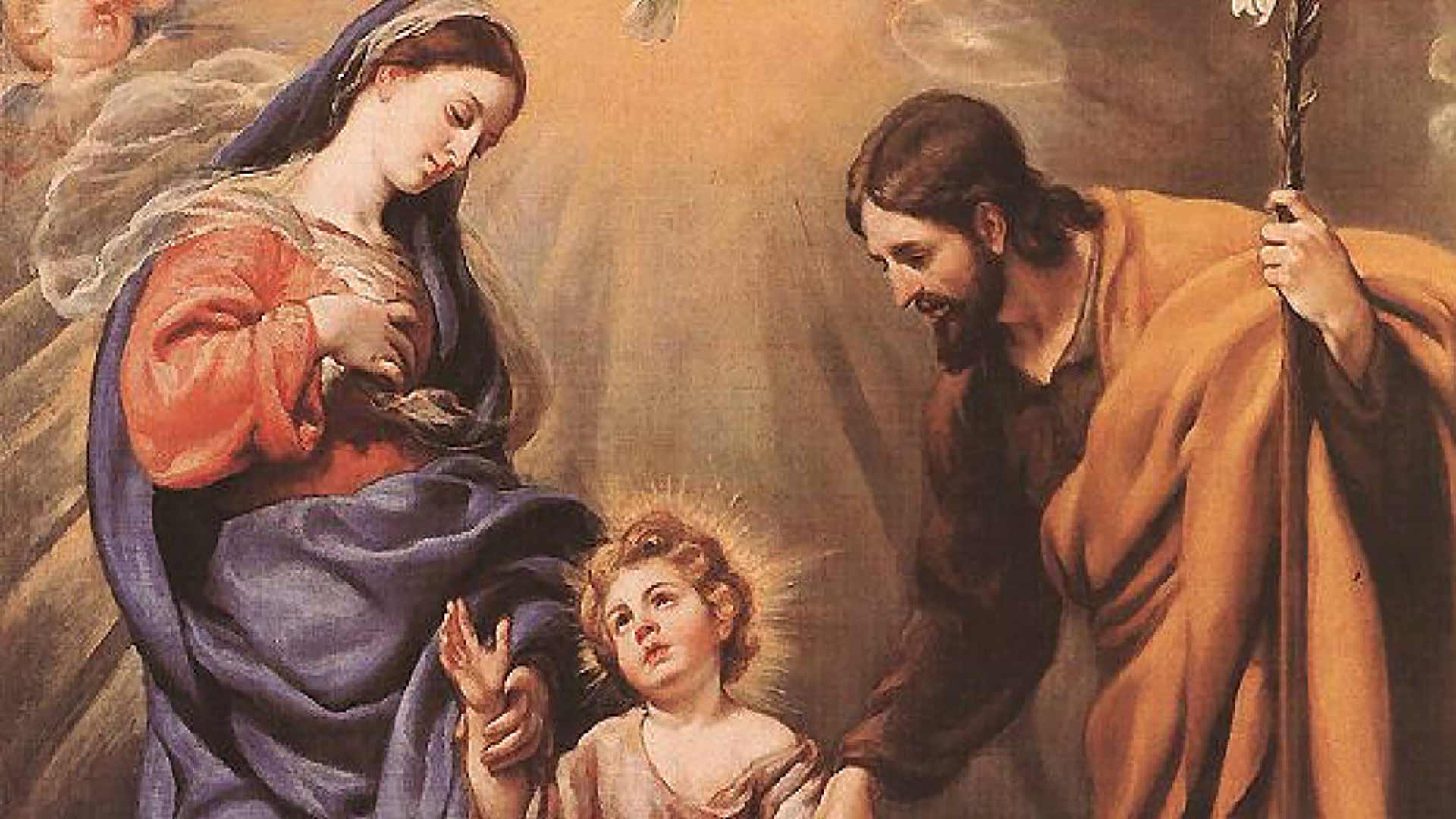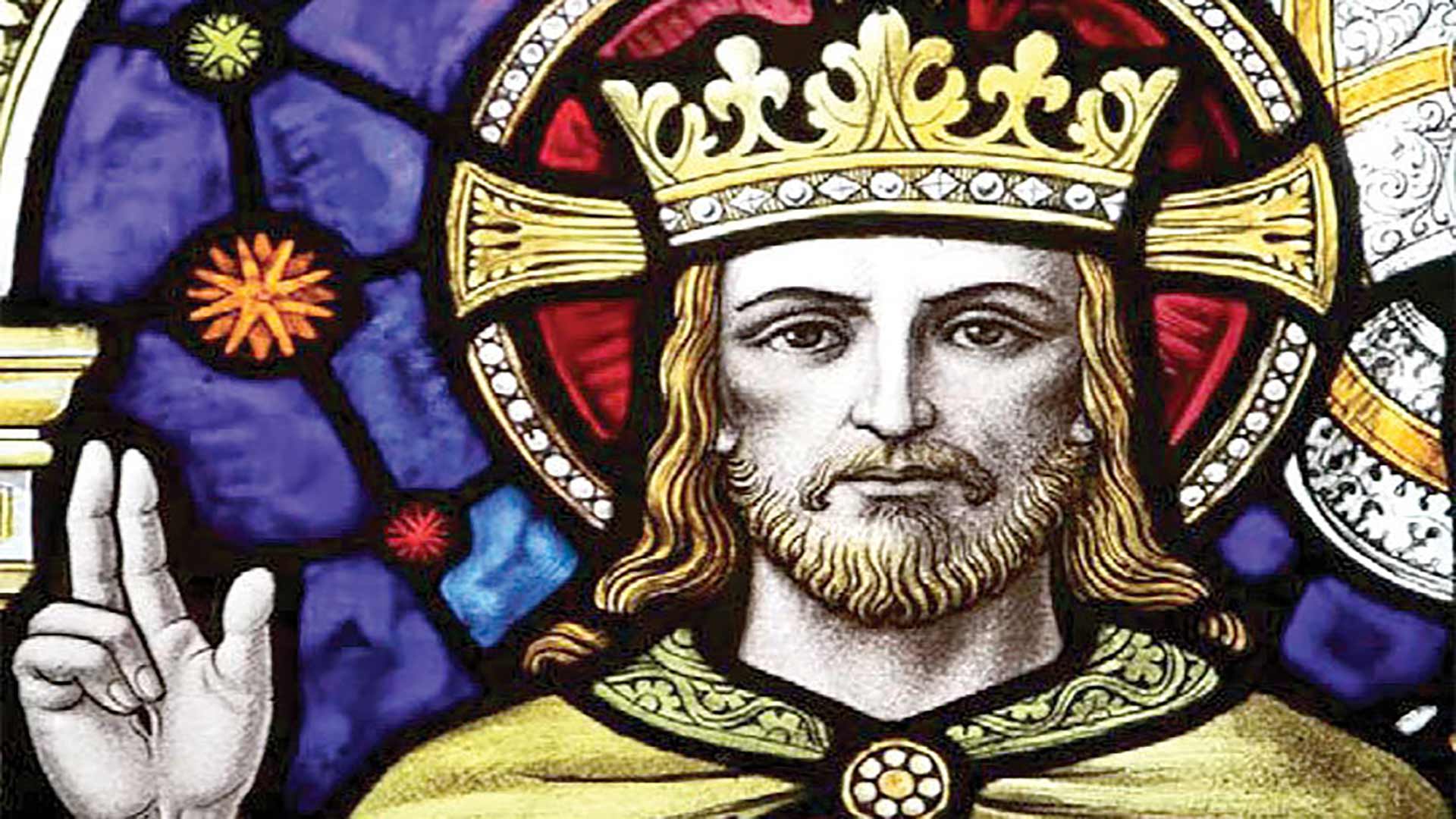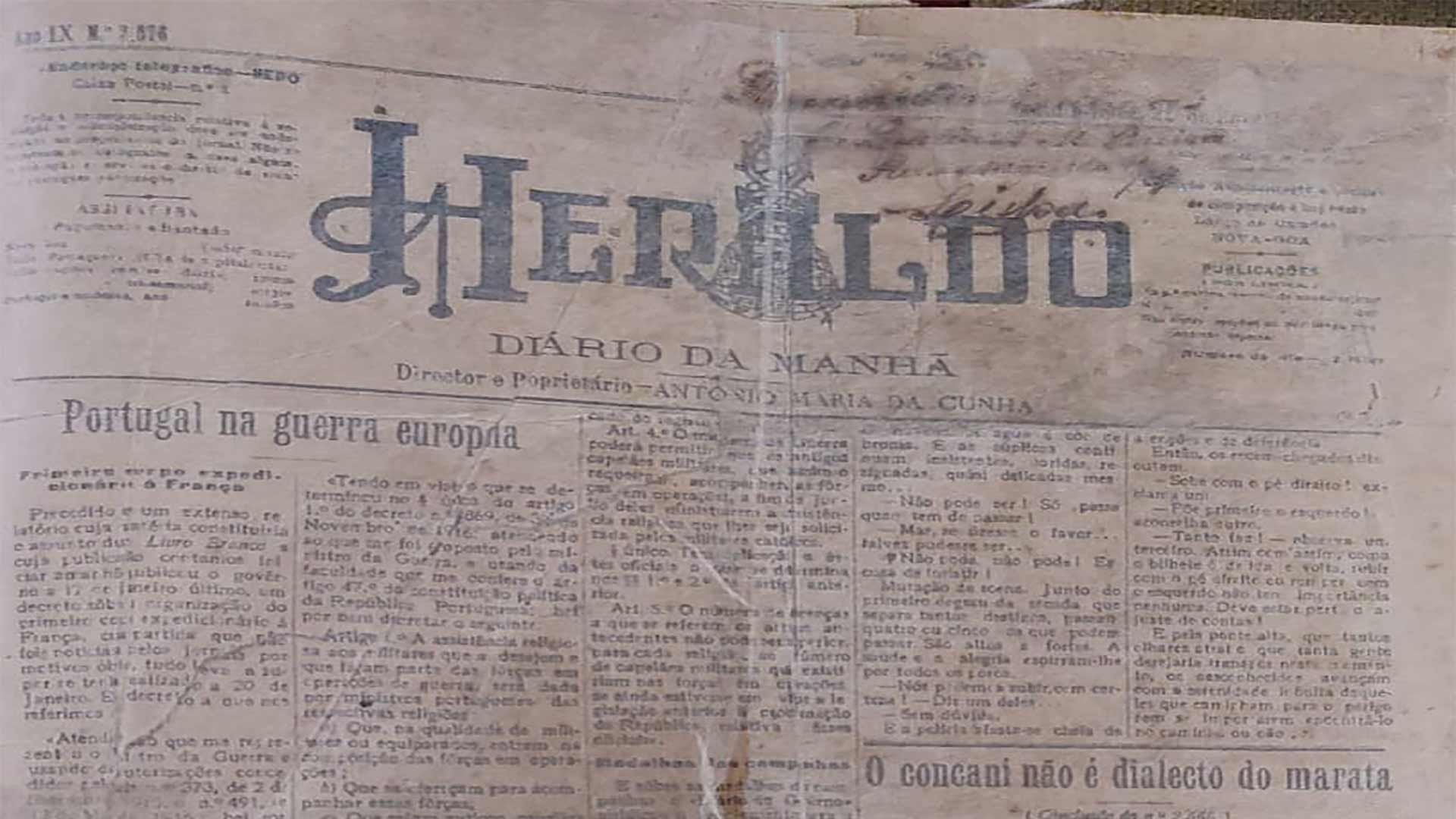Christ’s unmistakable divinity
All three Readings of Sunday after Epiphany underline the divinity and mission of the One born in Bethlehem. After all, that is what Epiphany was meant to be: a manifestation of Christ to the Gentiles as represented by the Magi. It was also the manifestation of divinity at His Baptism in the River Jordan, and finally at His first miracle, at Cana in Galilee.
January 6 (and now the Sunday close to it) is commemorated as the day the Magi visited the Infant Jesus. And today we commemorate His Baptism at the hands of His forerunner cousin, John, as recounted in the Gospel (Mt 3: 13-17). But what is the rationale behind a prophet baptising the Son of God, the Messiah?
Truly, John was hesitant but Jesus said, ‘Let it be so now; for thus it is fitting for us to fulfil all righteousness.’ ‘Righteousness’ or ‘justice’ is the new fidelity, a total obedience to the will of God. For His part, Jesus wished to express His solidarity with sinners, through baptism. He showed how His mission was a far cry from the Judaic dream of a proud and triumphant Messiah.
Realising what Jesus meant, John the Baptist consented to baptise Jesus. As a fitting endorsement of this act, the heavens open and the Spirit of God descend upon Jesus like a dove. And, lo and behold, a voice from heaven says, ‘This is My beloved Son, with whom I am well pleased.’ The bystanders must have been in awe and got goosebumps. What better confirmation could the Jews, then, expect before they accepted Jesus as the Messiah?
The First Reading (Is 42: 1-4, 6-7) prefigures the Gospel passage of today. We hear similar words from what is called the First Song of the Servant, making the hair stand on end. The Book of Isaiah has four oracles or poems on the Servant of Jehovah. It is not easy to identify this figure: was he the prophet himself? Or the historical Israel? Or the ideal Israel? Well, the New Testament identifies the Servant with Jesus Christ, linking especially the last oracle with His Passion.
Meanwhile, here are those words echoed at the Baptism of Jesus: ‘Behold my servant whom I uphold, my chosen, in whom my soul delights; I have put my Spirit upon him, he will bring forth justice to the nations.’
What follows is a picture of Our Lord meek and humble of heart, He who died for our sins. Finally, words expressing His mission on earth: ‘I have given you as a covenant to the people, a light to the nations, to open the eyes that are blind, to bring out the prisoners from the dungeon, from the prison those who sit in darkness.’
Indeed, Jesus was the mediator of the New Covenant; He was a light by the love, compassion and hope He offered to the nations; He cured the blind, the deaf, the mute and the lame, and brought many people back to life; finally, in our times, He has liberated you and me from physical, emotional, psychological and spiritual captivity.
Finally, in the Second Reading (Acts 10: 34-38), St Peter[1] is at the house of Cornelius the Roman centurion (considered the first gentile to convert to the Christian faith) when he vouches for his Divine Master. Peter states that after Baptism, the name of Jesus was made known throughout Judea, beginning from Galilee. Now anointed with the Holy Spirit and with power, Jesus went about doing good and healing those oppressed by the devil.
Since Jesus is the Light of the World and meant to be proclaimed to the ends of the earth, St Peter makes it clear right away that God is supranational. He does not care for earthly divisions of nations, societies, or any other. Any person is pleasing to Him and the Heavenly Father, not by their purity or impurity but by their fear of God and His justice.
By baptism, our sins are forgiven and our souls are infused with the life of God. We become children of that One True God. Like the first group of pagans who at Cornelius’ house were awed by the Good News of Salvation and broke their ties with their Jewish past by receiving baptism, may we too appreciate the fruits of the Holy Spirit and use our gifts to spread the Good News.
Banner: https://shorturl.at/3TKk0
[1] In St Luke’s Acts of the Apostles, St Peter is the primary protagonist through chapters 3-12 and the Apostle Paul through chapters 9-28.
Privileged to be part of God’s Family
Today, Sunday in the Octave of Christmas, marks the Feast of the Holy Family. In India, the Lectionary offers Readings for the Years A, B and C, as follows:
| Year | First Reading | Psalm | Second Reading | Gospel |
| A | Eccl 3: 2-6, 12-14 | Ps 127: 1-2, 3, 4-5 | Col 3: 12-21 | Mt 2: 13-15, 19-23 |
| B | Gen 15: 1-5, 21: 1-3 | Ps 104: 1-6, 8-9 | Heb 11: 8, 11-12, 17-19 | Lk 2: 22-40 |
| C | 1 Sam 1: 20-22, 24-28 | Ps 83: 2-3, 5-6, 9-10 | 1 Jn 3: 1-2, 21-24 | Lk 2: 41-52 |
However, in Years B and C, there is an option to use the Readings of Year A instead.
For reflections on the Readings of Year A, see https://www.oscardenoronha.com/2023/12/31/gazing-admiringly-at-nazareth/; and for Year B, see https://www.oscardenoronha.com/2023/01/01/under-two-holy-names/
-o-o-o-
Proceeding to the Readings assigned for Year C, we must note their aptness and correlation.
In the First Reading (1 Sam 1: 20-22, 24-28), Hannah[1] is one of two wives of Elkanah. Hannah was childless, whereas his second wife Peninnah bore him children; yet he had a soft spot for Hannah. Her status as first wife and her barrenness are reminiscent of Sarah (Gen 17) and Rebecca (Gen 25).
One day Hannah went up to the Tabernacle[2] and wept as she prayed. She asked God for a son and vowed to give him back for the service of God. She knew that being childless implied that one did not enjoy God’s favour; and bearing a male child would set her up in the community.
Finally, Hannah conceived and bore a son, whom she named Samuel (meaning, ‘Heard by God’). She raised him until he was weaned and brought him to the temple along with a sacrifice. There she made him over to the Lord for the whole of his life – something that will prompt moderns to question her wisdom. The fact is that, as a prophetess in her own right, she had discerned God’s will. Samuel was happy and fulfilled where he was planted – ‘How lovely is your dwelling place, Lord, God of hosts,’ says the Psalm today, doesn’t it? He became a priest and a man of great faith, Israel's last judge and first of the later prophets.
Hannah has a prayer of thanksgiving to God for the birth of Samuel; it’s called the Song of Hannah. It found an echo in the Magnificat that the Blessed Virgin Mary sang upon visiting her cousin Elizabeth. Hannah, Mary, and Elizabeth became pregnant in miraculous ways and dedicated their sons (Samuel, Jesus, and John the Baptist) to God’s service. And for those who may wonder how Hannah could be so self-sacrificing, the fact is God pays us back a thousandfold. Accordingly, Eli announced another blessing on Hannah, and she conceived three more sons and two daughters.
On this Feast of the Holy Family, the Gospel too could perplex the modern mind. When the parents of Jesus were returning from Jerusalem after the feast of the Passover, Jesus stayed behind in the temple. His parents did not know it; they then searched for Him in the city and found Him after three days. On hearing of how anxious they had been, Jesus retorted: ‘Did you not know that I must be in my Father’s house?’ Yes, seated among the teachers, He had amazed them with his knowledge and insightful answers.
Parents today suffer from greater anxiety than Jesus' parents did. Yet, their anxiety is only about how their children will fare in this world, not in the next. In stark contrast, even while Jesus displayed independence of mind, the parents of Jesus were satisfied with their Son’s answer – because His concern was with being in His Father’s house, where He truly belonged. It was not stubbornness. He had made His point, and was now obedient and submissive to His earthly parents. What a fine balance! Then, there comes, what is to me, one of the most beautiful passages in the Scriptures: ‘Jesus increased in wisdom and in stature, and in favour with God and men’, while His mother ‘kept all these things in her heart.’
Between the First and the Third Readings, we clearly have a preannouncement and its fulfilment, a forerunner and the actual Messiah. And what place do you and I have in the divine economy? In the Second Reading (1 Jn 3: 1-2, 21-24), St John[3] states, ‘We are called God’s children, and that is what we are.’ Indeed, by our baptism we have become God’s children, unlike others who, though also loved by God, are His creatures.
Noblesse oblige: privilege entails responsibility. Hence, our life as children of God ought to be radically different from that of unbelievers. We must live in a way that pleases our Father in Heaven; we must live a life of selfless love. If we ‘think of the love that the Father has lavished on us, by letting us be called God’s children’, we will never be discouraged when the world rejects us. The world rejects us as once they rejected Jesus. What a privilege to be in His company!
At the same time, we are not to rest on our laurels; ‘what we are to be in the future has not yet been revealed; all we know is that when it is revealed we shall be like Him because we shall see Him as He really is.’ So, we must pray for blessings and graces and earn our place in Heaven. And to ensure that this happens, we must keep the Father’s Commandments and live the kind of life that He wants us to live. His commandments are simple: that we believe in the name of His Son, Jesus Christ, and that we love one another as He has loved us. This will set an example to our immediate human families. Fortunately, we have the Holy Family of Nazareth for our model of family life, human relations and community life – all of which lets us partake of God’s family.
[1] She finds mention only in the first two chapters of the first Book of Samuel.
[2] In Jewish history, the Tabernacle (meaning, ‘dwelling’) refers to the portable sanctuary constructed by Moses as a place of worship for the Hebrew tribes during the period of wandering that preceded their arrival in the Promised Land. The Tabernacle became redundant after the construction of Solomon's Temple in Jerusalem in 950 BC.
[3] St John is the author of the Gospel of John and four other books of the New Testament – the three Epistles of John and the Book of Revelation.
The Light of Love
Three short Readings fills us with eager anticipation for Christmas.
On this Fourth Sunday of Advent, Micah’s words create the atmosphere. Micah (aka Micheas) is one of the Twelve Minor Prophets, a contemporary of Isaiah, Amos and Hosea. He castigated Jerusalem for her sin of idolatry would lead to her fall. He also prophesied her recovery and the restoration of the Judean state.
The First Reading of today (Mic 5:2) is a key passage in that regard. Micah honours Bethlehem, a small village south of Jerusalem, as the future birthplace of the Messiah: ‘You, O Bethlehem Ephrathah,[1] who are little to be among the clans of Judah, from you shall come forth for me one who is to be ruler in Israel, whose origin is from of old.’ This provides the convincing proof that Jesus is God!
The Gospel text (Lk 1: 39-45) endorses the fact that Jesus is God. ‘When Elizabeth heard the greeting of Mary, the babe leaped in her womb; and Elizabeth was filled with the Holy Spirit and she exclaimed with a loud cry, Blessed are you among women, and blessed in the fruit of your womb!’ Further, Elizabeth refers to her cousin as ‘the mother of my Lord’, who was ‘blessed’ for believing that there would a fulfilment of what was spoken to her by the Lord.
And what manner of man would the babe of Bethlehem grow up to be? The Second Reading (Heb. 10: 5-10) defines him: he would despise sacrifices and offerings and offer Himself as a holy sacrifice once for all. Seldom do we realise that the gentle spirit of the Nativity prepares the way for the drama of the Cross and the Paschal victory.
That Supreme Sacrifice speaks volumes of God’s love for humankind. We are called to live in the light of that ineffable love.
[1] Ephrathah, to distinguish this town from another called Bethlehem.
The Light of Joy
Today is the Third Sunday of Advent. We have got this far with hope and peace we have summoned from past two Sundays. We are half way to the holy day commemorating the arrival of our Saviour in Bethlehem two centuries ago. There is an air of anticipation, and the Readings reflect that joy. It stems from the conviction that, no matter how we may fall short of the glory of God, He does not abandon us. In fact, He has stayed with us through human history and our personal stories.
In the First Reading (Zeph 3: 14-18), we meet a rare prophet. Zephaniah prophesied in the days of king Josiah of Judah (640–609 BCE). He was a contemporary of Jeremiah and had much in common with him. The scene of his activity was the city of Jerusalem. A three-chapter book that he wrote places him among the twelve minor prophets.
Today’s text is from Zephaniah’s third and last chapter. It has a Messianic flavour, although not to the same extent as Isaiah and Jeremiah do. It’s a hymn of hope about the restoration of Israel. ‘Daughter of Zion’ and ‘daughter of Jerusalem’ personify the inhabitants. Zion was the local hill, on which David built his city. Zion was also a land of future promise or return from exile. And although infrequent in the New Testament, Zion has been used as a name for the heavenly city or for the earthly Christian city.
As foretold in the Old Testament, the Lord kept His promise. He sent His Only Son with the Good News of Salvation; the bad news was that the people of Israel misunderstood His mission and rejected Him. God, however, remains faithful to the end. He comes into our homes and hearts very especially, and will come again at the end of times – hour unknown.
As for St Paul, in the Second Reading (Phil 4: 4-7), he says ‘the Lord is at hand.’ What does that mean? It was common for the first generation of Christians to believe that the Lord’s return was imminent. So, in his letter to the Philippians, the Apostle instructs and reassures them. By no means does he give them false hope; for ‘at hand’ meant nearby, close to us, in spirit.
St John the Baptist and Jesus Himself often used that expression. In fact, Jesus is always at hand: does He not follow every step we take and prevent us from stumbling? Can we imagine even a moment without the Lord’s presence and intervention? God is one with our earthly reality. We must, therefore, in prayer with petition and thanksgiving, let Him know our concerns.
In the Gospel (Lk 3: 10-18), we learn that the multitude asked St John the Baptist: ‘What then shall we do?’ This question that occurs quite naturally is the beginning of a change of heart, a conversion. The Baptist not only tells them what they have to do, he points to Jesus as being the One they have to follow: ‘I indeed baptize you with water; but there shall come one mightier that I, the latchet of whose shoes I am not worthy to loosen: he shall baptize you with the Holy Ghost, and with fire.’
The son of Zechariah and Elizabeth then added that when Christ comes in judgement, He will ‘gather the wheat into his barn; but the chaff he will burn with unquenchable fire.’ Of course, this is not a matter for sadness but joy – for we have finally found The Way! Jesus endorsed the idea, saying, ‘I am the Way, and the Truth, and the Life. No man cometh to the Father, but by me.’
On Gaudete Sunday[1] today, we ought to rejoice, for the Saviour is in our midst, notwithstanding our sins of old. The pink or rose of the third candle of Advent, called the Shepherd’s Candle, represents that joy. Jesus is indeed the Good Shepherd. We have to rejoice with deep faith in His goodness and mercy. With this knowledge or light in our hearts, we are sure to experience the light of joy! And the more we partake of that joy, the greater will be our light, our knowledge, our understanding of things divine!
[1] So called from the Latin opening words of the introit antiphon, ‘Gaudete in Domino Semper’ – Rejoice in the Lord always!
The Light of Peace
Our Advent journey is so rich in meaning that themes keep adding through the Readings.
Today’s First Reading is taken from the Book of Baruch (5: 1-9), an anonymous author who had possibly assumed the name of Prophet Jeremiah’s scribe Baruch ben Neriah. The text announces the final restoration of Israel, her liberation and return from exile. There is a reference to the change of the name Jerusalem, in line with what the Prophet Isaiah had announced: ‘Peace of justice, and honour of piety’.
The city’s new appellation represents the joy experienced by returnees from the Exile, now assembled there to begin a new journey. Similarly, we who are exiles in this world see a new promise, a new light, a new hope. Jesus is to come again this Christmas and at the end of time, bringing peace, justice, honour and piety. And we will begin a new journey towards Heaven, the Eternal Jerusalem, where we belong.
The Gospel (Lk 3: 1-6) suggests that we too should assemble this Advent and embark on a new journey. It is metanoia, our journey of conversion and transformation. This cannot be said better than in the memorable words of Isaiah, with reference to the future St John the Baptist: ‘The voice of one crying in the wilderness: Prepare the way of the Lord, make his paths straight.’
We are never alone on our journey. Our Lord walks alongside, and whenever necessary carries us on His shoulders. That is how He makes our burdens light. He fills every valley, flattens hill and mountain, makes the paths straight and smooth, to ensure that we see the salvation of God – reach Heaven. This is our journey’s ultimate and noblest goal.
Let’s think of how our journey toward Christmas has been like thus far. Have we examined our conscience, confessed our sins (at the very beginning, not end, of Advent), prayed and asked for pardon? Advent is not a time of merriment in anticipation of Christmas. In fact, it is a penitential season, a ‘little Lent’.
‘Advent used to be forty days but was formalized to four weeks, in the ninth century, which is why we now have the four Sundays of Advent. The Mass itself assumes a more sombre tone during Advent. The priests wear violet vestments, as they do during Lent, since purple is the liturgical colour that signifies an attitude of repentance and sorrow for sin. The Gloria is also removed from the beginning of Mass during Advent, just as it is during Lent.’[1]
Though both Advent and Lent are times of preparation for Christmas and Easter, respectively, the essential difference is that Advent has no Passion Week. The penitential observances of Advent always have a festive character to them, which is why the Alleluia is retained. It is sad that we are tempted to pass over the penitential aspects of Advent and focus on the festivity of Christmas.
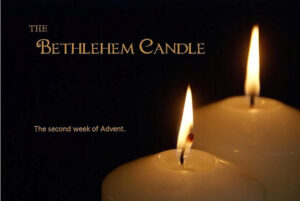
Vis-à-vis our secular culture, therefore, St Bernard of Clairvaux (1090-1153) drives home a point. The mystic co-founder of the Knights Templar says: ‘Consider Who He is that comes, whence He comes, to whom He comes, for what end He comes, when He comes, and in what manner He comes. This is undoubtedly a most useful and praiseworthy curiosity, for the Church would not so devoutly celebrate the season of Advent if there were not some great Mystery hidden therein.’[2]
In light of the above, it is significant that St Paul bore the same joyful sentiments with which Baruc celebrated the return of the exiles to Jerusalem. He sings a paean to the conversion of the Philippians. Not one to bask in past glories, the Apostle to the Gentiles urges them thus: ‘This I pray, that your charity may more and more abound in knowledge, and in all understanding: That you may approve the better things, that you may be sincere and without offence unto the day of Christ, filled with the fruit of justice, through Jesus Christ, unto the glory and praise of God.’
There is no joy without prior conversion. May the second Advent candle, called Bethlehem Candle that represents Peace, remind us of Mary and Joseph’s journey from Nazareth to Bethlehem before the Nativity. She was carrying the Prince of Peace. Let us, who are filled with a renewed, transcendental hope this Advent, embark on a spiritual journey that will better prepare us to receive the Light of the World who is Peace Incarnate.
Banner: https://shorturl.at/QtaWi
[2] ‘On the Advent of Our Lord and its Six Circumstances’, in Sermons of St Bernard on Advent and Christmas, p. 4. https://shorturl.at/limFm
The Light of Hope
Don’t the words ‘Behold the days come, saith the Lord…’ light up our faces and warm our hearts? Then we know it is the season of Advent!
What joy to be once again in Advent! It is the most beautiful time of the year. And what joy to be greeted with those words. The cause of that joy stems from Our Lord’s promise to transform our lives, making them holy and fit for Heaven.
In the First Reading (Jer 33: 14-16), the Lord promises to ‘make the bud of justice to spring forth unto David.’ Judah was in need of someone who would rule with ‘judgement and justice’, ensuring that the city lived securely and the country was saved.
The House of David ruled for generations. No doubt it had its share of ups and downs, but it all paved the way for the coming of the Messiah. In His infinite goodness, God sent us His Only Son. The promise made to David was realized in Jesus, but alas, He was rejected by His own. Jesus is now coming yet again. How prepared are we to welcome Him?
The best part of our preparation is to confirm our hearts ‘without blame, in holiness, before God and our Father, at the coming of our Lord Jesus Christ, with all his saints,’ as St Paul says in the Second Reading (Thes 3: 12 – 4: 2). The Messiah desires no silver or gold, no frills, and for sure no lip-service. He wants us to grow in the life of the spirit, or say, the theological virtues of hope, faith and charity. This for sincerity and constancy.
St Luke too, in the Gospel (Lk 21: 25-28, 34-36), recommends watchfulness. ‘There shall be signs in the sun, and in the moon, and in the stars; and upon the earth distress of nations, by reason of the confusion of the roaring of the sea and of the waves… When these things begin to come to pass, look up, and lift up your heads, because your redemption is at hand,’ says the Evangelist, quoting Jesus. But are we going to interpret them, understand them, accept them as God wants us to? Or are we going to superimpose them with our own ‘scientific’ ideas?
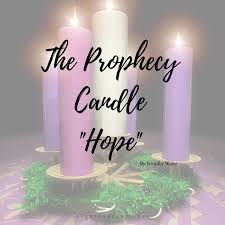
The Evangelist warns against ‘surfeiting and drunkenness, and the cares of this life.’ Woe to them who are caught in such a state, for the day will come upon us ‘as a snare’. Of course, alone we can do nothing, so we must prayerfully rely on God, asking that we may be ‘accounted worthy to escape all these things that are to come, and to stand before the Son of man.’
On this first Sunday of Advent, let us remember that That is where He would like to be born and have us proclaim Him. He brings us hope. This is symbolized by the Prophecy Candle, which takes us back to the Old Testament, especially Isaiah’s prophecies filled with hope of the coming of Jesus. The candle is purple, the primary colour of Advent, symbolizing royalty.
So will it be this year and at the end of times! After all, every Advent is only a foreshadowing of the time when the Son of Man will come in glory. Let us realize this truth, lest our wait go in vain. Hence, let us do all it takes to make Advent meaningful by illuminating our lives with the light of hope and spreading the joy of Jesus.
Banner: https://shorturl.at/yYtba
The Universal King of Hearts
The liturgical year celebrates the Mystery of Christ, right from His Incarnation and Birth to His Ascension, and from Pentecost to the Second Coming of Christ in Judgment. This latter occasion is held today as a Solemnity, which is the highest rank of celebration. Hence the lectionary entry for today, the thirty-fourth or last Sunday of the Year, reads: ‘Solemnity of Our Lord Jesus Christ Universal King’.
Describing Our Lord as King should not raise eyebrows. Did He not belong to the Royal House of David? Didn't the Wise Men at His Birth and Pilate at His trial and crucifixion refer to Him as ‘King of the Jews’? Most important of all, the Scriptures awaited a Messiah who would be Prophet, Priest and King. It is quite another matter that the high priest Caiphas twisted all that to mean that Jesus was subverting the Roman imperial authority in an attempt to become king. He knew full well that Jesus would be put to death for sedition. As for Pilate, however, he found no basis for a charge against Jesus; yet he let the populace execute their desire to kill Him. It is very significant that eventually Rome became the headquarters of Christianity!
Pilate did not find a basis for a charge because Jesus had convincingly said, ‘My kingdom is not of this world.’ Jesus was no doubt a king, but not of this world. The House of David was where he belonged as man but as God He was not to be seduced by it. In fact, Rome did not have to fear Him as a political rival, for He functioned in the spiritual realm. He was not in need of any human defence either, for He was one with the Father in Heaven. Whereas the Sanhedrin had expressly made Jesus' claim to divinity look like blasphemy, He was soon vindicated by His Resurrection and Ascension.
Today’s Readings trace the story of spiritual royalty. The First Reading (Dan 7: 13-14) is apocalyptic in nature and focussed on ‘one like a son of man’. While in the Old Testament, this term refers to one man or to humankind, Daniel is the only one who uses it differently. In the Babylonian exile, he had a vision of four great beasts set to overpower the earth. The Ancient of Days (God the Father) took his seat of judgment and expelled them. Daniel then saw ‘one like a son of man, coming with the clouds of heaven’ and standing before the Father, who gave him authority over all nations, languages, and peoples of the world for all eternity.
As for the Jews of Jesus’ time, they took the ‘son of man’ (Dan 7) to be a messianic human figure who would liberate them from political subjugation and restore the House of David. Jesus, on the other hand, was divine and unconcerned about earthly politics, as is evident from today’s Gospel text (Jn 18: 33-37). Perhaps only the religious, intellectual and political leaders were in the know of the real identity of Jesus. But then, instead of clarifying those popular misconceptions, they suitably exploited them with a view to safeguarding their own exalted positions.
It became necessary for Jesus to die and rise and fulfil all the other prophecies about the Son of Man for the world to know the full truth. Many New Testament passages (e.g. Mt 26: 64 and Mk 16: 26) are evocative of the imagery from Daniel’s vision. So, now there can be no doubt that Jesus was that Son of Man. He came into the world not to restore material goods but spiritual goods; to destroy not political powers but the power of sin. His Passion and Death revealed the love of God for humankind. At His Second Coming, He will judge the righteous and the unrighteous, and the former will inherit the kingdom of God.
The Second Reading (Rev 1: 5-8) gives us that hope. The Book of Revelation was written during the reign of Emperor Domitian, one of the great persecutors of the Church. The author, St John, sought to convey a sense of optimism and confidence in face of the people's suffering. He gives glory and praise to Jesus Christ, as being ‘the faithful witness, the first begotten of the dead, and the prince of the kings of the earth, who hath loved us, and washed us from our sins in His own blood, and hath made us a kingdom, and priests to God and His Father.’ Thanks to Him, one day, sin will disappear from the face of the earth. And when that day comes, we as followers of Christ will share in His glory and enjoy His loving, peaceful kingship for ever.
We must all pray for the kingdom to come, as indeed we do in the Our Father. However, a sine qua non for the kingdom to come is to let God's will be done. For this, we must let go of ourselves and make God the be-all and end-all of our life. Humanly speaking, this is not easy; but with God’s help nothing is impossible. We must, then, learn to put God first in everything we do, in every step we take, big or small. Our ardent desire must be translated into concrete decisions. This calls for prayer, sacrifice and practice of the Sacraments. It also calls for evangelisation by word and deed.
In short, we must ardently desire that more and more people join us in the campaign to let God’s kingdom come and His will be done. This sentiment is best conveyed by St Louis de Montfort’s stirring hymn ‘We Want God’. In a world steeped in atheism, agnosticism and indifferentism, we must take a stand for God. By having Christ as the king of our hearts we will have Him as the King of the Universe. He will forever be the Universal King of Hearts.
Discerning the Signs of the Times
The Readings of the end of the liturgical cycle portray the end times. The idea is to conscientize us about this inescapable reality. Initially, the suffering that the Israelites underwent in Exile was an occasion for prophets to speak of hope. But that hope became a living reality only centuries later, with the coming of Christ, who died for the sins of humankind by offering Himself as a living sacrifice. He was at once the High Priest and the victim, our only hope.
The First Reading (Dan 12: 1-3) takes us back to the Babylonian Exile. It does not matter whether the author was Daniel the returnee from Exile or Daniel the king of antiquity; possibly, the name here is symbolic. His book seems to have been written during the time of king Antiochus IV Epiphanes, who wished to end the Jewish religion and to Hellenize Palestine, over which he ruled (c. 167 BC). The fact of the matter is that many Jews stood up to him and were killed; and it was therefore of the essence for the people to know what would be the fate of those who had died.
That is when Daniel spoke of the resurrection as the beginning of happiness in the afterlife. Concretely, the prophet announced the liberation of Israel after the horrors perpetrated by the Antiochian monarch. Besides national resurgence, he also announced the resurrection of the body. Scholars say that the doctrine of the resurrection, according to biblical anthropology, places more value on the bodily aspect than on immortality conceived in the Hellenistic manner.
In today’s Gospel (Mk 13: 24-32) too we see the theme of the resurrection. Earlier on (12: 18-27), Jesus broached this topic; and after speaking of the destruction of Jerusalem and the rise of false prophets that will be posing as messiahs, Jesus speaks of the coming of the Son of Man. He quotes from the Old Testament about how the world will be after ‘the great tribulation’[1]: the sun will be darkened, the moon will not give its light, the stars will fall from heaven and the powers in heaven will be shaken. After that the Son of Man will come from the clouds with great power and glory and send out His angels and gather his elect (those who believe in Him as Messiah and Saviour) from the four corners of the world.
Will we discern these signs and mend our ways, or will we be oblivious of the changing times and suffer a titanic loss? Mind you, Jesus has warned us: ‘Take heed, I have told you all things beforehand (13: 23). Once before, addressing the crowd, He said: ‘Hypocrites! You know how to interpret the appearance of the earth and the sky. How is it that you don’t know how to interpret this present time?’ (Lk 12: 56) A pointed question indeed. So, if ignorance of the (secular) law excuses no one, shouldn’t the same principle hold true for God’s law? We cannot take God for granted and would do well to be in a state of readiness when the Son of Man arrives.
Jesus has stated very categorically that Heaven and earth may pass away but His words will not. Yet, He said not a word about the specific hour when the end will come; none except the Heavenly Father knows it. And as for us, it behoves us to wait in great anticipation, like the wise virgins did for the groom’s arrival. We have to read the writing on the wall, discern the signs of the times. We must look around and see what the world has come to: natural calamities; breakdown in human relationships; catastrophes within institutions, the Church included; and calamities of war. Are we then in the times of pre-Tribulation?
Finally, today’s Second Reading (Heb 10: 11-14, 18) reiterates last Sunday’s heartening message: that Christ offered for all time a single sacrifice for sins and sat down at the right hand of God, by which He has perfected for all time those who are sanctified. We now await His coming as the King of the Universe next Sunday. And soon, with Advent, yet another liturgical cycle will begin.
[1] There are different views about how this will pan out. But, simply understood, it is a period that Jesus refers to in the Olivet Discourse, the last of the five discourses that St Matthew reports on, before the beginning of the Passion. Jesus meant it as a sign that would occur in the end of times.
Banner: https://shorturl.at/QrbHg
Konkani is not a dialect of Marathi – 9
Part 9 of "O concani não é dialecto do marata"
by Mgr. Sebastião Rodolfo Dalgado (1855-1922)
(In Heraldo, Vol. IX, No. 2576, 22 February 1917, pp. 1-2)
Translated from the Portuguese by Óscar de Noronha
An important question now arises, which can also be regarded as a sensible and weighty objection. It being impossible, as a result of those significant discrepancies, that Konkani, as we know it, be a dialect of Marathi, how does one explain so many analogies, especially morphological, between the two languages?
It is a complex issue. It demands a lot of learning and long elucidation. In addition to philology, it needs history and ethnology to step in. I turned it over many times in my mind, but did not obtain satisfactory and definitive results, for want of some indispensable elements.
Hence, I am not on firm ground. I may put across my point of view if I get some respite from my occupations, and I find sufficient motivation, for elderly people generally flounder.
Meanwhile, responding to frantic demands, I will declare that I would not be averse to the hypothesis that Marathi is the subsoil (not mother, please note) of Konkani or the superinduction or superfetation. Which of the hypotheses is more plausible, if there is need of any?
This time my only goal was to break a lance for ‘my lady’ and to avenge the wild invectives that cowardly hands threw at her, mercilessly and with iron fists, but also – sorry to say! – with neither knowledge nor conscience. I end crudely, with not much of a method and hurriedly, so as not to delay the typographic proofs of more useful and less sentimental and abstract work. Maybe some minor slips escaped my notice – a fact that is understandable for him who works from his bed and on subjects that require frequent consultation of books.
I do not mean to say, however, that nothing has been written about Konkani that is sensible and deserving of praise, nor that I am displeased by opinions differing from mine. On the contrary, I disapprove of ipse dixit, and I believe that intellectual slavery is the worst kind of slavery. It is not something in which we say Roma locuta est, lis finita est.
But there are opinions. Opinions expressed without full grasp of the subject, albeit with literary trappings, only with the itch to show off and to give tit for tat, have no greater value than those coming from inmates of a mental asylum. They are combated, not with a view to convincing the opinion holders, but to prevent those opinions from getting established.
It goes without saying that, whoever lacks even elementary notions of general philology, and is unaware of the origin, history, phrases, dialects, literature, nature of vocabulary, grammar of a language, and her relations with her sisters and neighbours, cannot expatiate on their merits or demerits, their progress or degeneration, their purity or corruption. Ne sutor ultra crepidam.
Speaking a language by listening does not qualify one to deal with its philology, which is a completely different thing. Adolfo Coelho and José Maria Rodrigues know more about Latin philology than Cicero and Horace did; and Max Muller and Brugmann know comparative Sanskrit philology better than did Panini, the prince of the world's grammarians.
But this is not how they think in Goa, for lack of common sense and intellectual discipline. Freedom of thought and of speech is no excuse for nonsense bordering on insanity. The Hindu who, on the occasion of the proclamation of the Republic, entered a church over there, holding a cigar in his mouth, proved, if anything, that he was utterly uncouth.
How many of those who have written about Konkani would know the right declination of a noun or conjugation of a verb, or how to analyse a passage by breaking down the words, distinguishing themes and inflections and indicating the etymology? Just how many people mistake the past tense of transitive verbs for active voice, and the sentence – hânvem ambó kheló – for ‘I ate a mango’, when, in reality, it means ‘the mango was eaten by me’!
It seems as though general belief over there has a say in everything that concerns our communities: Zâmkún zhânkún gâmvkar zâtá; one becomes a ganvkar through sheer chattering.
That results in a lot of vines and few grapes. If competent people took care to teach; if the ignorant cared about learning; if they talked less and worked more, it would be a win-win. We are so done with chatterboxes.
Fortunately, in the midst of disconcerting mists, a gleam of light is not lacking. I was deeply moved to learn that my venerable friend and most exemplary priest, Father Casimiro Cristóvão de Nazareth, had offered the local government a Portuguese-Konkani vocabulary, put together by him in collaboration with some knowledgeable people, to be published and distributed to schools.
I have no doubt that the work is of great merit. Father Nazareth, who trained from early years at the school of Filipe Néri Xavier and Miguel Vicente de Abreu, and who has been a busy bee throughout his life – tanquam apis argumentosa – and is a walking library of useful information, does not produce fake stuff nor is he a publicity seeker.
But to think that an eighty-five-year-old man, and moreover, blind like Tobias – quia aceptus eras Deo – is still working and making it a point to be of service to the country, while so many young people exhaust themselves with an hour’s reading and need to amuse themselves with manille and suposta and give in to banal and sinful talk: what a striking contrast and what an edifying lesson!
It pains my heart to remember – and this happens so often! – that the Portuguese government declined to publish his Mitras Lusitanas, a product of much labour and an ample mine of such precious information, collected with great tenacity from all the accessible sources. It occurs to me now that Counsellor Jaime Moniz told me that he would bother him with requests for books to read or to send to Rachol Seminary.
In any other civilized country, that monumental work would have been welcomed as a national glory, and an award given to its author, who neither made a profession out of his calling nor aspired to lucrative and showy positions. Of him, certainly, one cannot say that he was ‘toddy coconut tree’ – suretsó madd.
Certain happenings in Portugal lead people to believe that they live in some Zululand. From Rome, they recently sent me Pietro della Valle’s book, which cost twenty francs. The Customs office of Lisbon valued it at twenty escudos – over four times – and charged 1700 réis as duties! The bookseller's receipt was presented and it was proposed that they keep the book for fifteen escudos, thus making a profit of five. They threatened that they would value higher. And all that just because of the shoddy, dirty parchment binding, for which I didn't pay a penny!
Patriotism is a good and praiseworthy thing. Jesus Christ shed tears foreseeing the future ruin of his homeland. But I reject patriotism that forces me to distort the truth and trample on justice.
In conclusion, I must declare, in order to appease my conscience, that those vague references are not tantamount to personal contempt for those targeted, whom I know not and wish all the best, as well as all humanity. I would have liked to be entirely doctrinaire, if the subject so allowed it. I earnestly request the reader not to be curious to investigate who is hinted at in the above allusion. It is about doctrine, not people. Veritas et caritas super omnia.
First published in Revista da Casa de Goa, Series II, No. 31, Nov-Dec 2024, pp 45-48
Trouble, Trust and Thanks
The Readings of today help us develop faith and trust, love and gratitude. As we inch closer to Advent, let us cleanse our hearts and minds that we may worthily receive the Divine Babe.
In the First Reading (1 Kings 17: 10-16), we learn about a famine that devastated Israel under king Ahab. Under these trying circumstances, a poor widow and her son received the prophet Elijah into their lowly home in Zarephath, a town on the Mediterranean coast. Their supply of flour and oil was at its fag end, yet miraculously it was not depleted until the famine itself came to an end. Truly, the needy are sometimes the more generous and welcoming.
Israel’s dry spell was a punishment for idolatry prevalent in the kingdom, but soon God turned things around. When the prophets of Baal prayed for rain, there was scorching sun; but after Elijah had restored Yahweh’s altar and offered sacrifice and prayers, it began to pour. This signalled the power of the true God and the end of the famine.
The miraculous episode is reminiscent of the wonders that St Joseph Vaz worked in Sri Lanka. After efforts by the kingdom’s false prophets had come to nought, the Goan apostle prayed for rain at an altar erected in a public square. Rain bucketed down, leaving only the area around the priest and the altar dry! The miracle was a defining moment for the Vazian apostolate: many embraced Catholicism and those that had fallen by the wayside returned to the faith.
In our own times, look at how the world went berserk in the days of Covid-19 even while self-proclaimed saviours became the new idols. What state of mind will we find ourselves in when the real D-day comes? Will we be prepared to welcome our Saviour? Therefore, come what may, we must swear our allegiance to Him right away, so that at the eleventh hour there is no vacillation nor succumbing to mental or physical vaccination.
It is such false prophets that Jesus in the Gospel (Mk 12: 38-44) railed against: ‘Beware of the scribes, who like to go about in long robes, and to have salutations in the market places and the best seats in the synagogues and the places of honour at feasts.’ They devour widows’ houses and for a pretence make long prayers. We could well add that then, instead of being run into jail, they are run into Parliament!
Such are the ways of the world, which the kingdom of Heaven will greatly condemn. The high-handed will be shown the door and the poor shall inherit the kingdom; those who mourn now shall be comforted, and those who weep, laugh. The same with the prophets... What prophet worth the salt has not been reviled, hated and excluded from his own land, by his own people, precisely for standing up and speaking up for God? He will be awarded the crown of righteousness.
Meanwhile, in the Gospel text too, there appears a poor widow. Like her Old Testament counterpart, who through her destitution trusted in the Lord, she too in her deprivation gave Him everything she had. And Jesus, seated opposite the treasury and watching people putting in their gifts, quickly made a distinction between those who had comfortably contributed out of their abundance and the poor widow who even out of her poverty put in two copper coins, her whole living!
It is not that Jesus summarily condemns the rich and commends the poor. In fact, it is not persons but faulty attitudes and acts that he censures. Those with wealth and/or intellect, how well do they serve God? Historically, we have umpteen examples of individuals, families, even countries, that have prioritised and served God in all things.
On the other hand, there are those who receive but never repay. ‘Kam zalem, voiz melo’ is a saying that comes promptly to mind: God is taken for granted. We get so puffed with pride that we think we can have it our way. No wonder, Jesus noted that it is easier for a camel to go through the eye of a needle than for a rich man to enter the kingdom of heaven.
The way out, then, is to be always in awe of God and to have a heart filled with love and gratitude, so we can sing with the Psalmist: ‘My soul, give praise to the Lord.’
Finally, the Second Reading (Heb. 9: 24-28) presents us the Christ who ‘has appeared once for all at the end of the age to put away sin by the sacrifice of Himself.’ A solemn and beautiful promise wraps it up, saying that ‘Christ, having been offered once to bear the sins of many, will appear a second time, not to deal with sin but to save those who are eagerly waiting for Him.’
Let us therefore do everything to be counted among those who await His Second Coming. Nothing compares to Him and to the time when the Son of Man will come, at an hour we do not expect. We have to be in a state of readiness, irrespective of our troubles. We have to trust in Him and be thankful at all times.
Banner: https://shorturl.at/pnCDx
